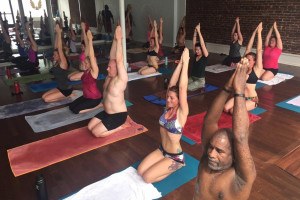5 Philly Fitness Pros Open Up about Their Mental Health
From going to therapy to disengaging with toxic social media accounts, health pros share how they take care of their emotional wellbeing.
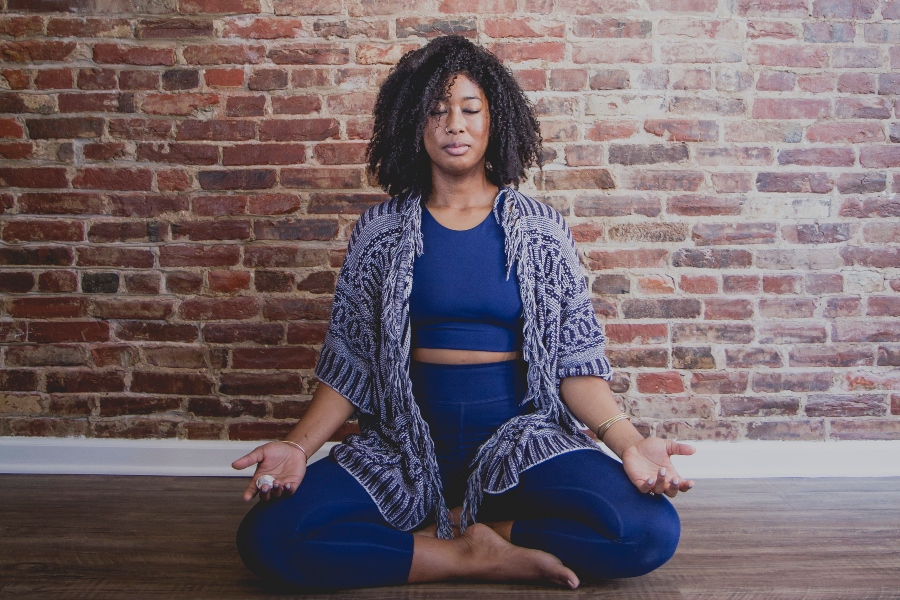
Five Philly fitness instructors, including yoga teacher Adriana Adelé, share why prioritizing their mental health is a necessity. / Photograph by Joanna Nowak Photography.
We hear it time and time again: taking care of your mind is just as important as taking care of your body. Yet, though we proudly share our fitness achievements — like conquering our 100th spin class or holding crow pose for the first time — when it comes to discussing mental health in social circles, feelings of hesitation and fear can arise.
Luckily, these days there’s been a lot of positive movement in openly discussing mental health and emotional wellbeing. While in the past there were stigmas around discussing therapy — and many media sources perpetuated stigmas surrounding mental health — now, more and more people are talking openly about these issues. There’s also a rise in people intelligently using social media to dispel myths and talk about mental health in productive ways.
To help stimulate more conversation, we turned to five Philly fitness pros who are open about their mental and emotional wellbeing on Instagram. Below, they share how they prioritize their mental health and use their platforms for positive change.
BWP: Why is mental health care a priority for you?
Adriana Adelé, yoga instructor at Three Queens Yoga and Maha Yoga: “When my mental health is off track, it affects my other areas of wellbeing, making it more difficult to easily access things like joy, pleasure, and true rest. Sometimes my diagnosed anxiety and depressive tendencies take a toll on my spirit. I’ve slowly learned that when I do proactively care for my mental well-being I feel greater flow, more connection to purpose and self, and experience feelings of resiliency, rather than those of less-than-enoughness. Caring about my mental health helps me curate and cultivate the energy I want to offer myself and, in turn, offer to others.”
Larkin Silverman, co-founder of and instructor at Lumos Yoga & Barre: “I consider teaching yoga and group fitness an act of care-giving, and if I don’t have the capacity to care for myself, I cannot hold that space for my clients. If and when I experience professional burnout or am struggling to not bring what weighs me down into my work, it can lead to resentment of my workplace, my coworkers, and my clients, and directly impede my capacity to do my work. Just like insufficient nutrition and adequate sleep are essential to my overall functioning and health, my mental health is a critical piece of experiencing a sense of overall wellness.”
When did you realize your mental health is just as important as your physical health?
Alexis Rose Artis, CEO of ARX Fitness and spin instructor at SoulCycle: “About one week after I had my second daughter [at 31 years old], I started experiencing a disconnection — the smell of her made me nauseous, her cry made me angry rather than worried, and I couldn’t bear to hold her. The next day, I went into my closet, closed the door, called my older sister, and cried. I was so embarrassed. She came to my house and stayed an entire week to help. I waited two years to tell my husband of my postpartum depression, not because I didn’t think he’d be supportive, but because I needed time to navigate my own feelings and emotions — which I learned, as a rape survivor, comes with time. From that day forward, we promised each other we would always put our mental health first and never judge one another.”
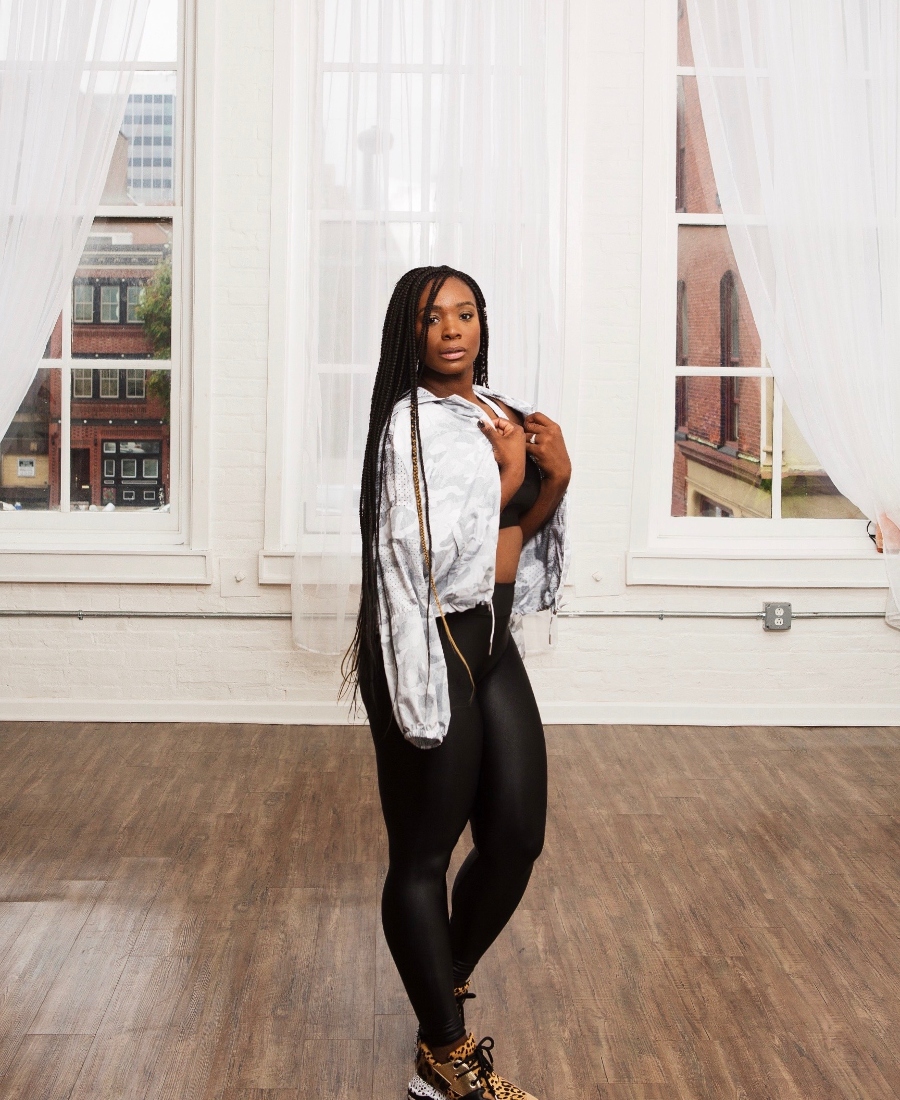
Alexis Rose Artis, CEO of ARX Fitness and spin instructor at SoulCycle. / Photograph courtesy of ARX Fitness.
Emma Barrera, spin instructor at City Fitness: “When I was 18, I was diagnosed with bipolar disorder. It changed my entire life. If I want to stay stable and healthy, I need to be taking care of myself properly every single day. I’ve come to describe it as a permanent cold in my head. If you have a cold, you go grab some over-the-counter medicine. The medicine I take just helps that cold in my head.”
Morgan Dowd, trainer at Unite Fitness: “I didn’t fully accept this until about March of last year. This was the first time I asked for help on my own. At that point, I was nine years into recovery from anorexia and exercise bulimia, and four years into my fitness career. For so long, I believed that once I was weight restored and physically healthy, things would just fall into place. Even though from the outside I was “in the best shape of my life,” I was still incredibly fragile mentally. I was triggered easily, still had a lot of disordered eating thoughts, and was having panic attacks almost daily. I woke up one morning and decided I didn’t want to navigate my mental health alone anymore. If my job is to help others be their best selves, then I had to help my whole self, too.”
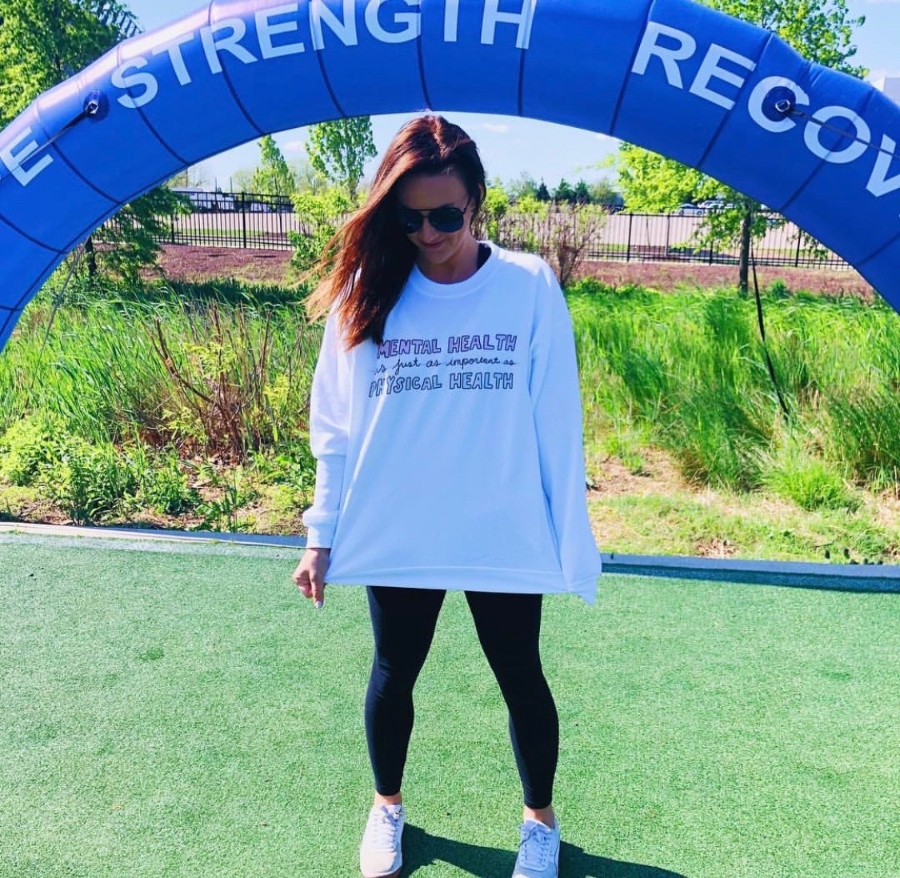
Morgan Dowd, coach at Unite Fitness. / Photograph courtesy of Morgan Dowd.
What resources, services, and/or practices do you utilize to take care of your mental and emotional well-being?
Adelé: “Therapy! I have a really amazing therapist who was referred to me by a friend. I highly suggest folks ask their circle for recommendations for therapists because it’s so important to find a therapist who you can connect and be open with! I’ve had more than a few false starts with therapy and at the time I thought it was my fault (cue another spiral of anxiety), when really it was just a round hole, square peg situation from the start. With that said, therapy isn’t financially accessible for all, but sliding scale services are available. Plus, there are a lot of resources out there for self-education and introspection, from “therapy Instagram” to books and podcasts (I’m listening to one right now on the nervous system and self-regulation that’s pretty digestible and actionable).”
Artis: “I say no more often, take one day per week where I’m unreachable, limit my social media usage, and see a therapist regularly.”
Silverman: “I’m a big proponent of therapy, though I’m currently between providers (and I won’t lie, facing new intake paperwork can be daunting). In the meantime, I’ve found ways to make use of free or low-cost resources, and turn to my gratitude journal, mindful movement, and meditation to self-reflect. I’ve also worked to more deliberately curate the media I consume by unfollowing accounts that make me feel shame, comparison, or dissatisfaction, and replacing with content from mental health-focused accounts and experts.”
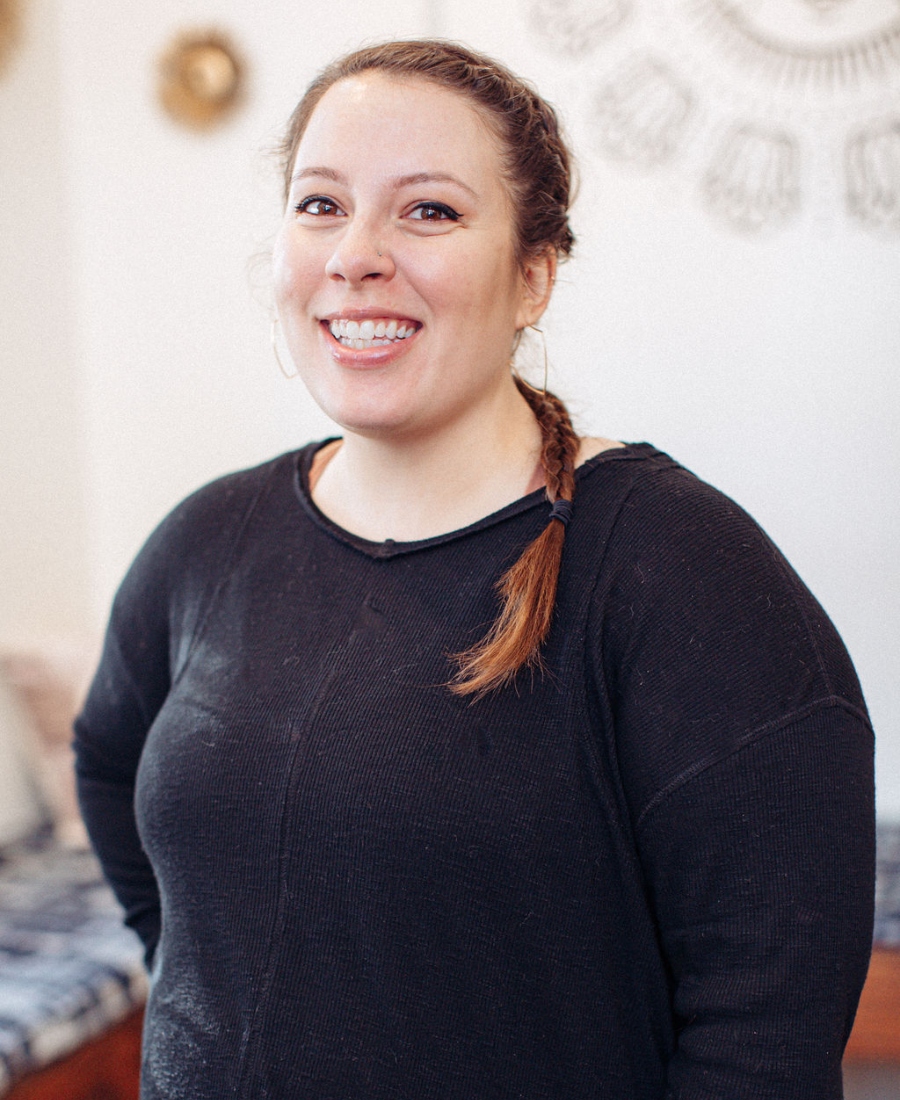
Larkin Silverman, co-founder of and instructor at Lumos Yoga & Barre. / Photograph courtesy of Larkin Silverman.
While discussions surrounding mental health have progressed and become more present on social platforms and in social circles, a stigma still seems to exist. Why do you think that is?
Dowd: “I am certainly glad that mental health is being talked about, but I think social media doesn’t show the full, real picture of any person’s life. It also plays a detrimental role in stereotyping certain issues. Not all eating disorders are rail thin, not all depression looks like someone dressed in black and crying all the time. I currently struggle with anorexia, anxiety, and depression, even though I might “look” fine and am able to maintain a “normal” life. The myths we’re taught make it easy to downplay certain issues and not ask for help because they don’t “fit the mold.” The more people ask for help and misconceptions are dispelled, the more we push back against the stigma together.”
Adelé: “As a Black girl growing up, I remember my pain around disordered eating and depression being dismissed because those were “white people problems.” That comes from not only cultural conditioning, but also issues in wider representation of who is portrayed as having (and therefore is allowed to have) mental health disorders, who can seek help, and what that help looks like. I think there’s also just straight up fear — fear of being judged, fear of being labeled, fear of the unknown. But in order for there to be a change, we have to start with ourselves. I’d love to see a world where folks talk about their mental health struggles and wins as easily and with as much applause and encouragement as when people talk about their goals in the gym.”
Who or what has helped you most in being transparent about your mental health care and journey with others?
Barrera: “I live by the mantra, “Crazy is a concept.” Those four words have guided and helped me along my journey. I am not crazy because I live with a mental illness. No matter how insignificant the voice in my head tries to make me feel, I [know I] am still worthy of kindness and love.”
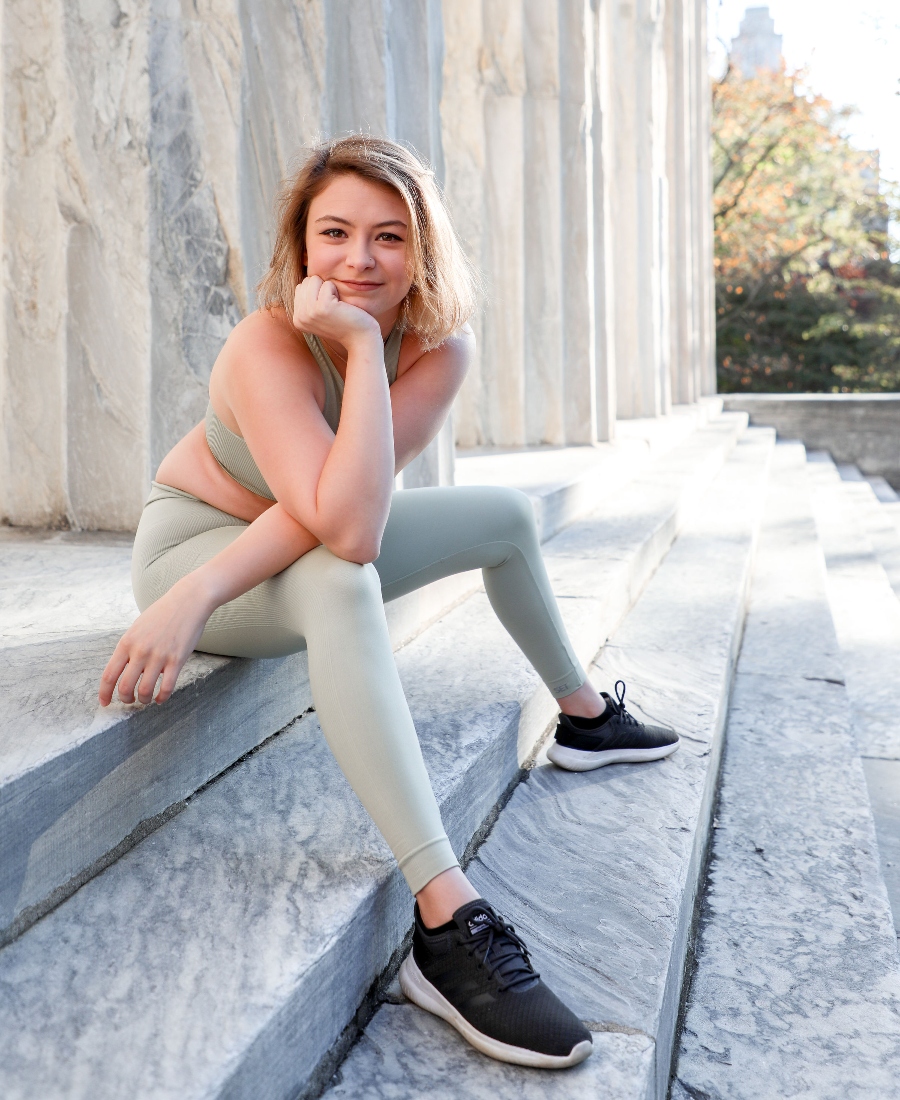
Emma Barrera, spin instructor at City Fitness. / Photograph by The Shine Studio.
Artis: “When I first was prescribed Xanax for anxiety and depression, I was so worried how it could impact my image. Then I quickly remembered how I overcame the embarrassment of being a rape survivor — that there’s actually nothing to be embarrassed about. Look at me now! I’m a blessed, strong, smart, beautiful queen who has a testimony to share. That’s my why and that’s my superpower. My daily mantra: If not now, when?”
Want to hear more from us? Join Be Well Philly at:
FACEBOOK | INSTAGRAM | NEWSLETTER | TWITTER


